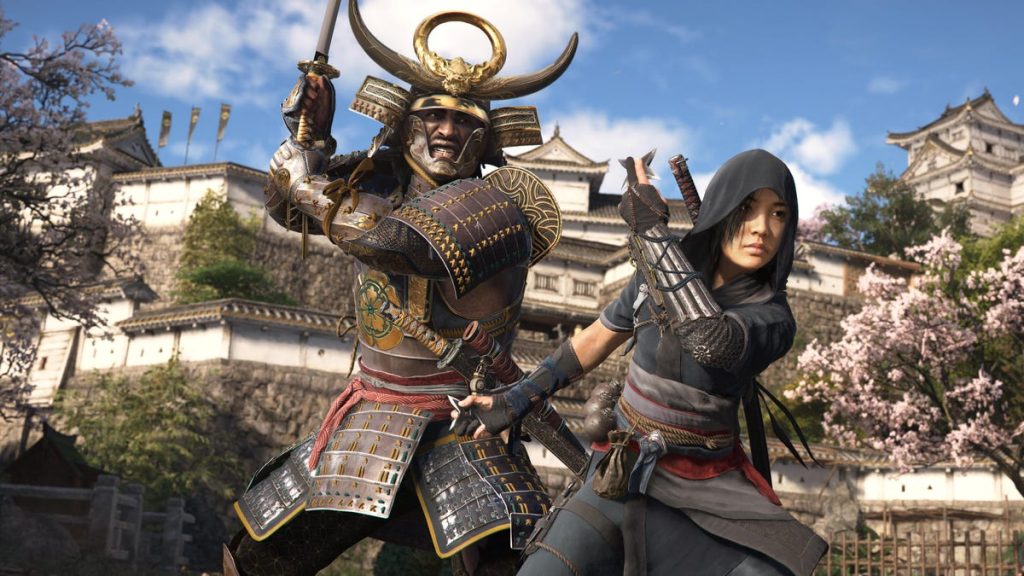Assassin’s Creed: Shadows, the latest installment in the long-running franchise, finally delivers on years of fan requests by transporting players to the captivating world of feudal Japan. Following some delays, the game promises a unique dual-protagonist system, a renewed focus on player choice and exploration, and a return to the series’ meta-narrative with the Animus Ego.
The core gameplay innovation lies in the dual protagonists, Yasuke and Naoe. Unlike previous games with character selection options, Shadows requires players to utilize both characters throughout the story. Yasuke, a powerful Black samurai, excels in direct combat with his heavy armor and devastating attacks. Naoe, a nimble ninja, favors stealth and maneuverability, allowing players to bypass confrontations entirely. This “stealth and fight” dynamic encourages players to adapt to different situations and utilize each character’s strengths. While both characters are technically capable of either playstyle, their inherent specializations create a dynamic where players must strategically choose their approach based on the mission’s challenges. This represents a departure from previous Assassin’s Creed titles, where a single protagonist could generally handle both combat and stealth with relative ease.
The dual-protagonist system is showcased through a castle infiltration mission. Initially attempting the mission with Yasuke proved challenging, as his direct approach faced overwhelming resistance. Switching to Naoe, however, allowed for bypassing the initial defenses through stealth and vertical traversal. Inside the castle, Yasuke’s combat prowess became invaluable for navigating the enemy-filled corridors. This constant interplay between characters adds a layer of strategic depth to the gameplay, forcing players to consider their preferred playstyle and adapt to the situation. It’s worth noting that while players can’t switch characters mid-combat, they can freely swap between them while exploring the open world. This encourages a more thoughtful approach to missions, prompting players to evaluate the challenges ahead and select the most suitable protagonist from the outset.
Further enriching the gameplay are character-specific abilities and support systems. Yasuke possesses powerful attacks, such as a lightning-fast dash and a forceful kick, while both characters can summon Allies for assistance. These Allies, functioning like fighting game assists, can distract enemies, provide backup in combat, or even eliminate targets outright. This adds another layer of tactical depth, allowing players to tailor their approach based on the available support. In addition to Allies, players can utilize Scouts to uncover information and navigate the game’s open world. This reflects a deliberate shift towards a less hand-holding approach to quest design. Instead of clear markers, players receive hints and must rely on observation and exploration to pinpoint objectives.
The game emphasizes player agency through its “guide, don’t tell” quest design. Missions often lack explicit waypoints, requiring players to gather information through observation and environmental clues. Scouts can be deployed to reveal points of interest, while the “Observe” mechanic highlights enemies, loot, and objectives, encouraging a more deliberate and investigative approach. This stands in contrast to many open-world games that often rely on constant waypoints and objective markers. In Shadows, players are encouraged to explore, investigate, and deduce their next steps, leading to a more immersive and rewarding experience.
While the preview didn’t reveal much about the overarching narrative, it confirmed the return of the Animus, a staple of the Assassin’s Creed series. The Animus Ego, the latest iteration of this virtual reality device, once again places players within the memories of their ancestors, but with a twist. Hackers, glitches, and a sinister undercurrent hint at a deeper meta-narrative that has yet to be fully unveiled. This will likely appeal to long-time fans of the series who appreciate the interwoven narratives between the historical settings and the modern-day story. The inclusion of the Animus Ego suggests that the familiar themes of conspiracy, manipulation, and hidden truths will once again play a significant role in the overall narrative.
Assassin’s Creed: Shadows appears poised to deliver a compelling experience, building upon the series’ established strengths while introducing innovative gameplay mechanics. The dual-protagonist system, the focus on player choice and exploration, and the intriguing hints of a complex narrative promise a rich and engaging adventure in feudal Japan. With its March 30 release date fast approaching, anticipation builds for a game that could potentially redefine the Assassin’s Creed experience. The blend of familiar elements with fresh innovations suggests that Shadows may not only satisfy long-time fans but also attract new players to the franchise.

